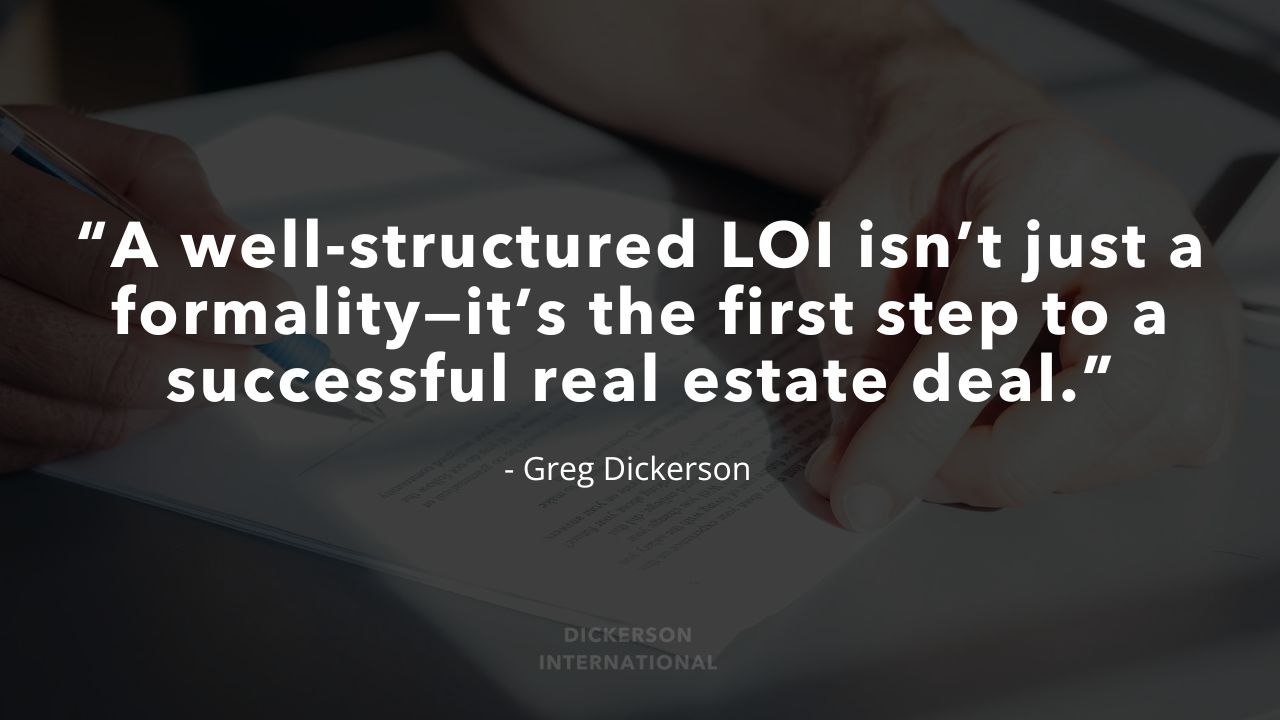Submitting an LOI: The Crucial Step BEFORE a Legal Commercial or Multi Family Purchase Contract
A Letter of Intent (LOI) is an essential tool in commercial and multifamily real estate transactions. It sets the foundation for a deal by outlining key terms before the formal contract process begins. Understanding how to use an LOI effectively can help investors navigate negotiations with clarity and confidence.
What is a Letter of Intent (LOI)?
An LOI (Letter of Intent) is an early, non-binding document that outlines the basic terms of commercial and multi-family real estate deals. It simply serves as a roadmap for buyers and sellers to agree on key points before hiring attorneys to create a formal purchase agreement.
The Purpose of an LOI
The primary function of an LOI is to clarify the major terms of commercial and multi-family transactions early on. This prevents unnecessary legal expenses and streamlines negotiations by identifying potential deal-breakers upfront. Since it is non-binding, an LOI does not commit either party to the deal but demonstrates serious intent to proceed.

Key Elements of an LOI
To be effective, a Letter of Intent should include specific details such as:
- Buyer’s Identity: Clearly state who is purchasing the asset—whether an individual, company, or investment group.
- Asset Description: Outline exactly what is being acquired, whether a single property, a portfolio, or a company that owns real estate.
- Key Deal Terms: Include major terms including but not limited to the purchase price, deposit amount, financing structure, and proposed closing timeline.
- Contingencies: Specify any conditions that must be met before the deal can move forward, such as financing approval or satisfactory due diligence.
The Commitment Behind an LOI
Although an LOI is non-binding, it carries a level of commitment. Once the terms are agreed upon, it is expected that both parties honor the general intent of the agreement unless significant issues arise during due diligence.
“Backing out of an LOI without a valid reason can harm your credibility. The industry values integrity and following through on agreements.” – Greg Dickerson
Reputation matters in real estate, and reneging on an LOI without just cause can damage relationships with brokers, sellers, and investors.
How Due Diligence Affects an LOI
Due diligence is a critical phase where the buyer verifies the property's financials, condition, and legal standing. While an LOI is based on preliminary information, significant findings—such as undisclosed structural issues or financial discrepancies—may justify renegotiating key terms like price, deposit requirements, or closing timeframes.
Seeking Professional Guidance
An LOI can be drafted independently or with the assistance of a broker. However, consulting an attorney and an accountant is highly recommended to ensure the document aligns with best practices and legal requirements. Overlooking critical details can lead to costly mistakes down the line.
Next Steps After an LOI
Once both parties agree on the LOI terms, the document is sent to an attorney to draft the official purchase agreement. This marks the beginning of formal negotiations and the legal contract phase of the transaction.
Why an LOI is Crucial in Real Estate Deals
An LOI is an invaluable step in the real estate investment process. It provides a structured approach to deal-making with minimal financial risk, allowing both parties to negotiate effectively before committing to a legally binding contract. For investors looking to close deals efficiently and professionally, mastering the LOI process is essential.
Want to learn more? Get your step-by-step BLUEPRINT to a Real Estate Wealth-Building Machine—no experience needed!
